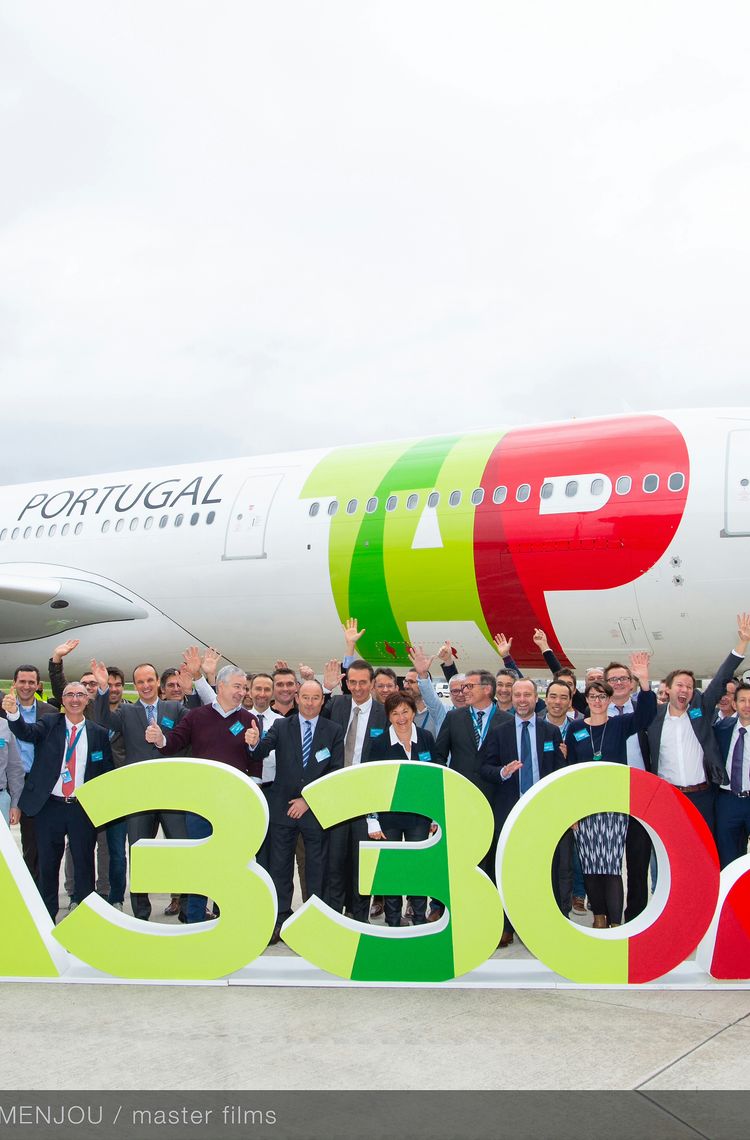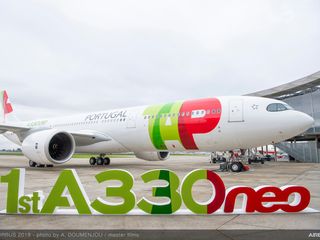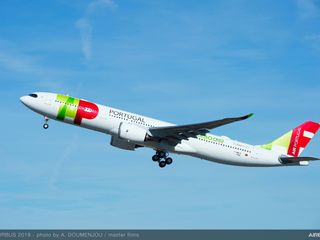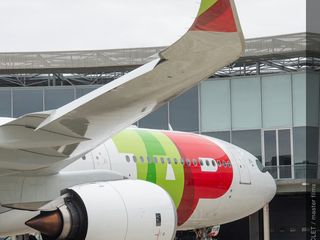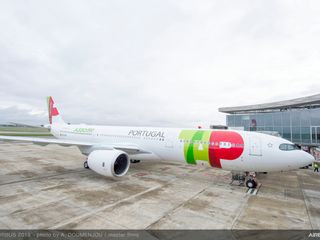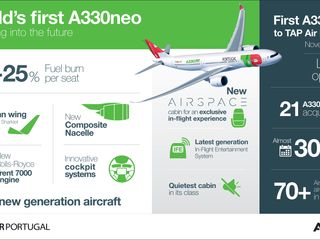The widebody twin-engine jetliner is powering into the future
The first A330neo was delivered by Airbus to TAP Air Portugal today, introducing the latest-generation member of its popular A330 widebody twin-engine aircraft family with unprecedented operational efficiency, the quietest cabin in its category and the lowest seat-mile cost in the 300-seat jetliner category.
This milestone A330neo is an A330-900, the longest-fuselage version, which is configured in a comfortable three-class layout for TAP Air Portugal to accommodate 298 passengers (34 in full-flat seats business class, 96 in economy plus and 168 in economy class).
Powered by the latest Rolls-Royce Trent 7000 turbofan engines, the A330neo provides an unprecedented level of efficiency – with 25% lower fuel burn per seat than previous generation competitors. Its wing has increased to a span of 64 meters and incorporates 3D optimised aerodynamics, as well as new Sharklets inspired by those used on the A350 XWB jetliner.
Cabin comfort with Airspace by Airbus
Featuring the Airspace by Airbus cabin design, the A330neo offers more personal space, larger overhead storage bins, advanced interior lighting and the latest generation in-flight entertainment system and connectivity. The Airspace cabin is designed with innovative “efficiency enablers” that enables up to 10 additional seats compared to the A330-300.
Today’s A330-900 delivery continues the three-decade relationship with TAP Air Portugal, which began in 1988 with the delivery of an A310 – one of the cornerstones of Airbus’ widebody twin-engine jetliner product line. This latest aircraft joins the Portuguese carrier’s fleet of Airbus-built aircraft, currently composed of 72 widebody aircraft (18 A330s and four A340s), along with 50 single-aisle A320 Family jetliners.
The A330-900 is one of two A330neo versions, along with the shorter-fuselage A330-800 version. Airbus performed the A330-800’s maiden flight earlier this month, with its certification targeted in 2019, followed by first delivery and service entry in 2020.
- For additional information on the first A330neo delivery, see the Airbus press release.
- Find out more about Airbus’ commercial aircraft market leadership across its jetliner families.
